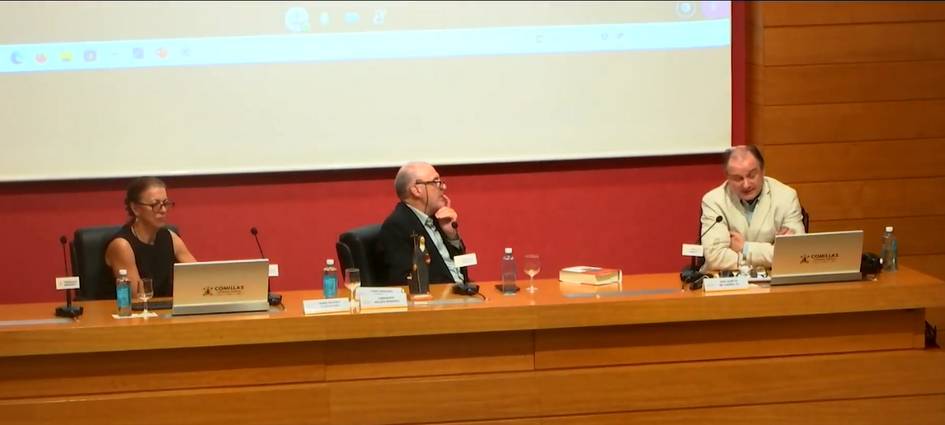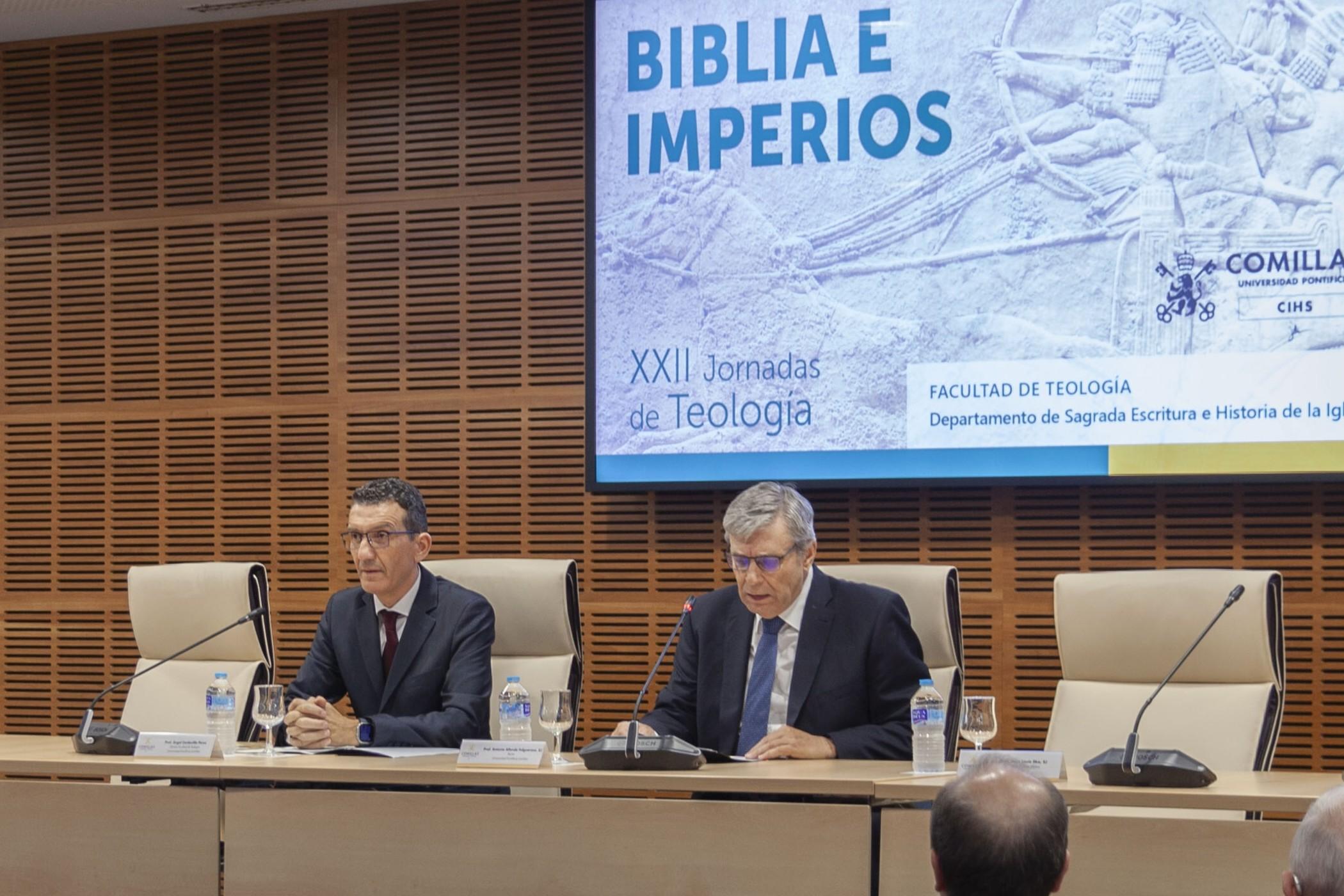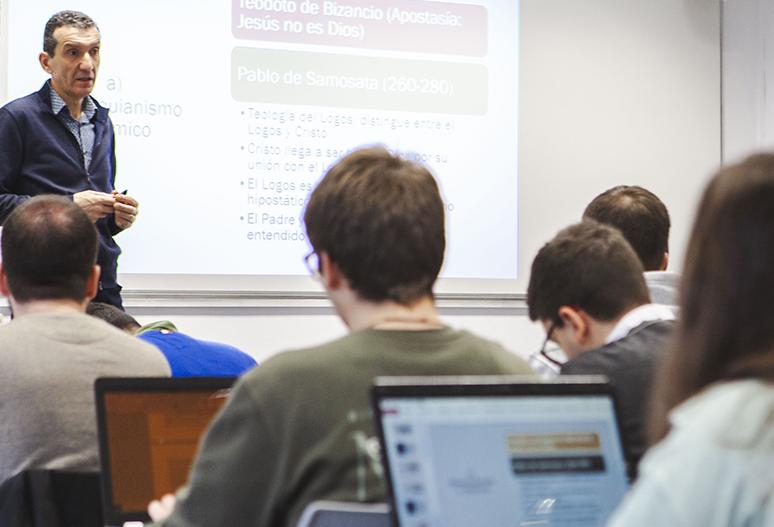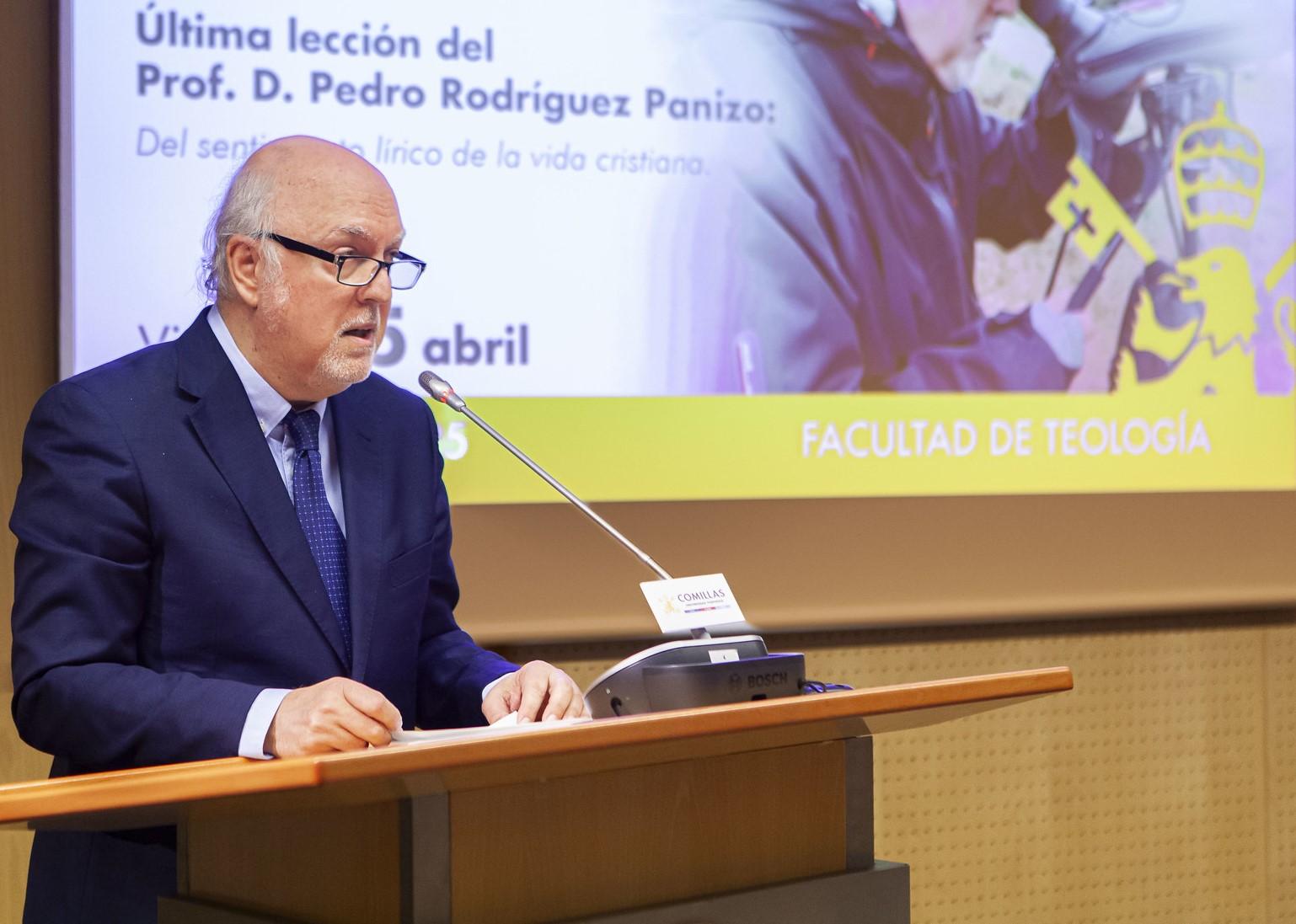Mama Antula. First Argentinean saint
The U. Institute of Spirituality organised this round table on this saint with the participation of professors from the Faculty of Theology

From left to right, Nurya Martínez Gayol, Fernando Millán and José G. de Castro
4 July 2024
On 29 May, a round table discussion on the figure of María Antonia de Paz y Figueroa (1730-1799), known as "Mama Antula", took place in the Conference Hall of the Comillas Pontifical University. This round table was organised by the University Institute of Spirituality, on the occasion of the recent canonisation of Mama Antula in Rome on 11 February 2024.
Mama Antula was a unique woman who, when the Jesuits were expelled from the territories of the Spanish crown, maintained - amidst all kinds of difficulties - the practice of the Spiritual Exercises in Argentina. She is often depicted as a wayfarer or pilgrim to recall her impressive evangelising work in various regions of Argentina.
Professors José García de Castro, Nurya Martínez Gayol and Fernando Millán Romeral took part in the round table. Nora Beatriz Kviatkovski, RJM and Luisa Sánchez Sorondo connected from Argentina. The speakers highlighted both the value and the topicality of Mama Antula's testimony. They also underlined some of the lines of Pope Francis' homily at the canonisation ceremony and highlighted how testimonies such as Mama Antula's show the deepest sense of lay commitment precisely at this time when the universal Church is reflecting on synodality.
The full video is available in open access below:
All the latest news from the Faculty of Theology can be found on the website, in the monthly newsletter and on the social network X (formerly Twitter).
You may also be interested in

The Faculty of Theology reflected on power, faith and resistance in biblical traditions, in the framework of the Jubilee of Hope

The Faculty of Theology (Comillas CIHS) is ranked 34th in the world and is the best in the Spanish language, according to the latest ranking by subject

The lecturer of the Faculty of Theology gave his farewell speech, before his imminent retirement, appealing to the lyricism of the Christian life
